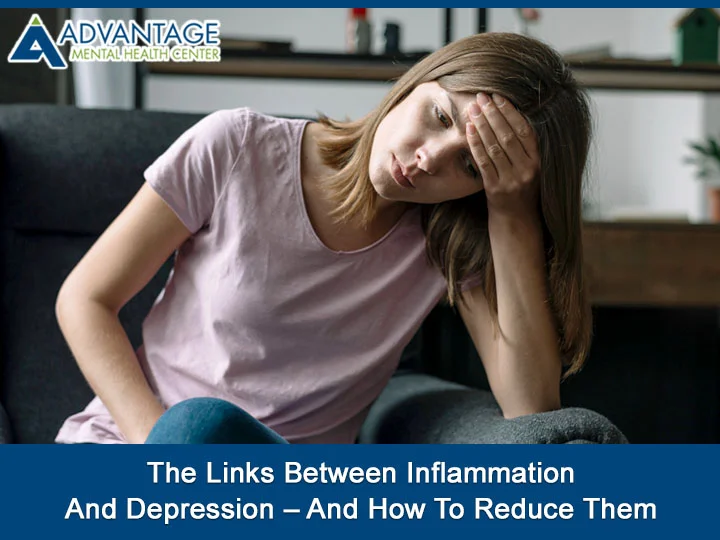Around 280 million people live with depression, according to the World Health Organization. Depression is a common mental health condition that can have debilitating impacts on those who suffer from it. It can cause people to feel tired and lethargic, despondent and miserable, and sometimes it can even impact the ability to go to work or carry out simple day-to-day tasks in Pinellas County.
Inflammation is the body’s response to problems and is most notable during the healing process. Warmth, redness, and swelling around an injured area are classic examples of inflammation – and in this case, they can help the body to recover in a healthy way. However, chronic inflammation can be problematic for the body and mind. Chronic inflammation occurs when the body thinks it is being attacked by something and responds accordingly. There are various things that can cause inflammation, and stress and depression are among them.
We’ll look closer at the links between inflammation and depression and some of the strategies you can try to reduce them.
The Vicious Cycle
Research has suggested that depression and inflammation are linked, but many people don’t appreciate just how interlinked these problems can be. Suffering from depression can lead to inflammation of the brain as a direct result, but it can also be compounded by other effects.
For example, people who feel depressed may not feel like going out to exercise, eating nutritious foods, or spending time with family and friends. Since these are all things that can help to combat both inflammation and depression, it can keep someone trapped in a cycle that feels like they can’t escape.
It’s important to take small steps when you first start trying to reduce inflammation and depression. Spending just five minutes outside or speaking on the phone to a friend for a few minutes can help to lift your mood and make you feel less stressed – in turn reducing inflammation too.
Exercise as a Healer
Physical exercise comes with many benefits, making it one of the most helpful tools we have for combatting inflammation and depression. For many people with depression, it is often challenging to take the first step and go for a walk or work out at home. Doing small things when you feel like it can help to make exercise seem more fun, and when you start to see the benefits, you are likely to feel encouraged to continue.
Exercise is something that can help to fight inflammation and depression at the same time. Choose a form of exercise that you enjoy, rather than trying to figure out the ‘best’ type of exercise to do. The best form of exercise is the exercise that you enjoy since this is much more likely to become a sustainable habit. It takes regular exercise to ensure you can keep inflammation and depression to a minimum.
Speaking to Someone When You Need Help
There are many challenges that we encounter in life, and sometimes you might feel like you need to speak to someone. There are different types of health professionals available to help on your journey. You might feel that speaking to a qualified counselor will help you at the moment, or perhaps a nutritional therapist might offer the guidance you need.
Finding a support system that works for you is important when navigating ways to reduce inflammation and depression. Feeling supported will help you to reduce stress, inflammation, and any depression and anxiety you are experiencing.
Finding the Right Support
If you’re looking for mental health support in Pinellas County, look no further than Advantage Mental Health Center. You can find the support you need from qualified and caring professionals.
Picture Credit: Freepik


